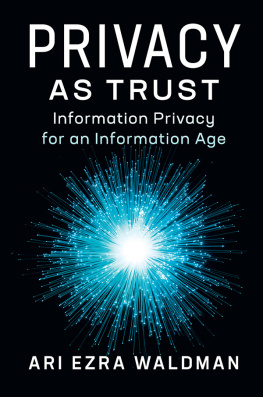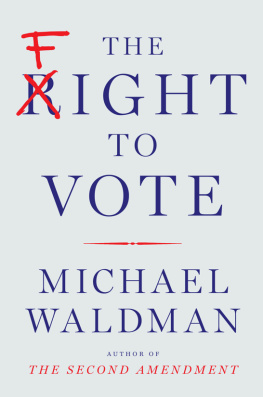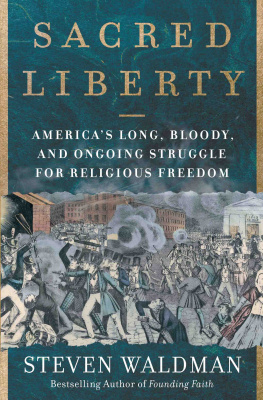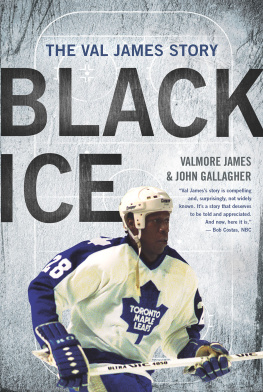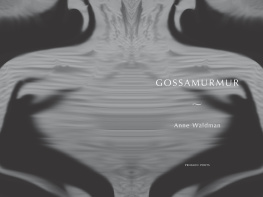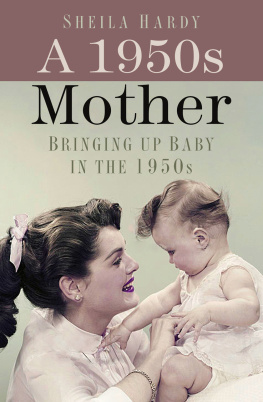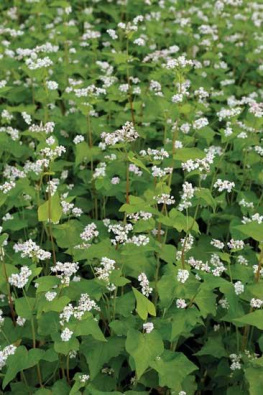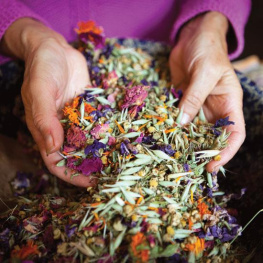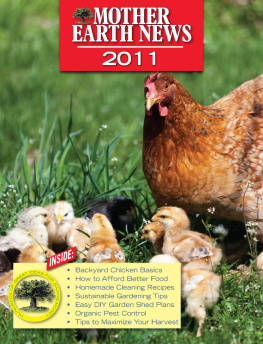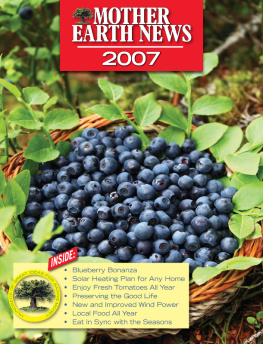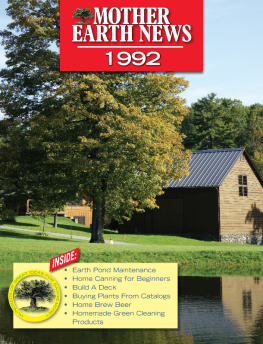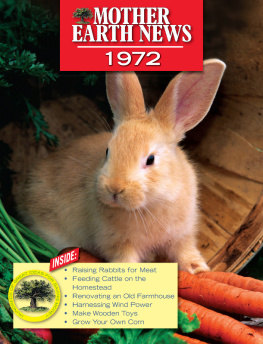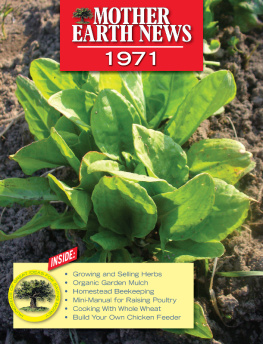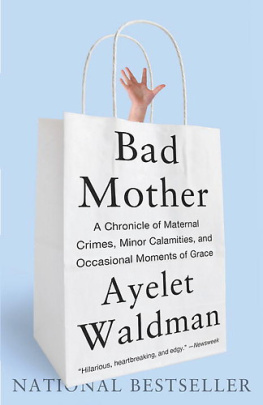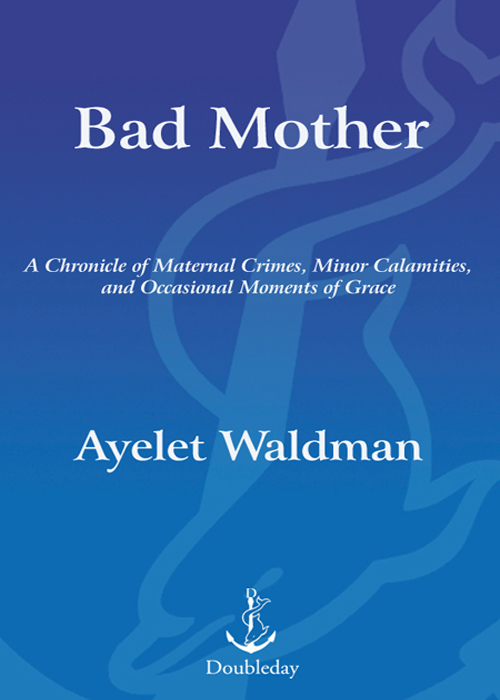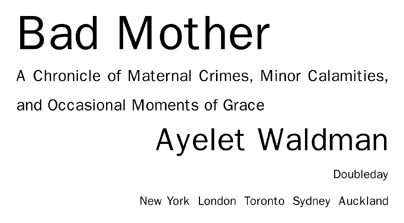Introduction:
Or, Life in Eighteen Pieces
T he morning after my wedding, my husband, Michael, and I were lying on a vast expanse of white linen in the bridal suite of Berkeleys oldest hotel, engaging in a romantic tradition of newlyweds the world over: counting our loot. Sifting through the checks, I said, Whats with the multiples of eighteen? Fifty-four dollars, ninety. Wow, heres one for one eighty.
Life, my new husband said.
Life?
You know, chai. Didnt your grandmothers always give you checks in multiples of eighteen for your birthday?
One of my grandmothers, I recalled, always sent a crisp five-dollar bill tucked into a birthday card. The other had presented me for most of the previous twenty-seven years with one of a series of Jewish-themed necklaces that, after the thirteenth or so, would go right into my underwear drawer, never to emerge again.
He explained, Its gematria. The ancient Jewish system of numerical symbolism. Each Hebrew letter has a number value. You spell the Hebrew word for life, chai, with the letter chet, which equals eight, and the letter yud, which equals ten. Chet, yud, eight and ten. Eighteen stands for life.
Among the constellation of Stars of David twinkling in my underwear drawer lay tangled a number of gold and silver chais, necklaces laces bearing that two-letter word. One, with letters close to two inches high, had adorned the yoke of my forest green acrylic cowl-necked sweater in my eighth-grade yearbook picture; the silver was the precise shade of my braces. While Id always known that chai, life, was a symbol of good luck, I had never been taught the significance of the number eighteen.
Since that morning fifteen years ago, I have received more checks in multiples of eighteen, as have my children on the occasions of their births and birthdays. Symbolic representations of life and luck, even if luck is understood to mean readily transferable into Spider-Man Legos, Polly Pockets, and handfuls of candy.
Once you have children, eighteen becomes a number with a certain magical weight. Eighteen is the age of majority. Its the age when they can vote (although not drink), when they graduate from high school and go off to college. Eighteen-year-olds are legally adults, I remember reminding my own mother when I was that age; you cant tell them what to do. And after your children turn eighteen, you are no longer responsible for them in the eyes of the law.
Except, of course, the law of the land is irrelevant; its the law of your heart that matters. The law might think differently, but your children are yours forever, your responsibility until, at last, you are theirs.
This book is about the perils and joys of trying to be a decent mother in a world intent on making you feel like a bad one. Because it is about me, and my experience of motherhood, it is necessarily about the luckiest things that have ever happened to memy four children and my husbandand thus it seems only fitting that I tell the story in eighteen chapters. It also seems fitting that I hesitate a moment before telling my storyour storyto consider the question of whether it is appropriate to write about my children at all. Would a Good Mother keep her own counsel, button her lip? Does writing about my children make me a Bad Mother?
My children have given me their permission to write this book. I always share what Im writing with them; I check in to make sure theyre not uncomfortable and dont feel exposed. And there have been many times when I have decided, because of their trepidation or my own concern, not to tell a story or dwell on a topic. I am confident that I have not betrayed my children anywhere in these eighteen chapters. Still, they are under eighteen, and one of them cant even read. Their permission alone cannot justify the project.
The justification lies in the fact that the very writing of this book embodies my approach to motherhood, even, dare I say it, my philosophy. I believe that mothers should tell the truth, evenno, especiallywhen the truth is difficult. Its always easier, and in the short term can even feel right, to pretend everything is okay, and to encourage your children to do the same. But concealment leads to shame, and of all hurts shame is the most painful. Only if you name a problem, confront it head-on, drag it into the light, does it become surmountable. I always tell my kids that as soon as you have a secret, something about you that you are ashamed to have others find out, you have given other people the power to hurt you by exposing you.
One of the darkest, deepest shames so many of us mothers feel nowadays is our fear that we are Bad Mothers, that we are failing our children and falling far short of our own ideals. In these eighteen chapters I explore that fear. I turn over those rocks and expose the spidery places beneath. By presenting a faithful and honest record of my experience as a mother, I hope to show both my readers and my children how truth can redeem even what you fear might be the gravest of sins.
As I write this, Sophie is thirteen years old, Zeke just turned eleven, Rosie is seven, and Abraham, whom we most often call Abie, is just five. Thirty-six altogether. A multiple of eighteen.
My luck, my loves, my chai.
1. Bad Mother
I busted my first Bad Mother in the spring of 1994, on a Muni train in San Francisco. She was sitting on the edge of her seat, her young daughter standing between her knees. She had two barrettes clamped between her lips and a hair elastic stretched around the fingers of one hand. With her other hand she was brushing the little girls long dark hair, trying to gather the slippery strands into a neat ponytail. It was not going well. She would smooth one side and then lose her grip on the other, or gather up the hair in the front only to watch the hairs at the nape of the girls neck slide free. The ride was rough, the Muni car bucking and jerking along, causing the little girl periodically to lose her footing. When the driver took a turn too sharply, the little girl stumbled forward, her sudden motion causing her mother once again to lose hold of the ponytail. With a frustrated click of her tongue, the mother yanked a handful of the girls hair, hard, and hissed, Stand still!
Thats when, indignant, confident that someday, when it was my turn to brush my own daughters hair, I would never be so abusive, I leaned forward in my seat, caught the womans eye, and said, in a voice loud enough for everyone in the train car to hear, Lady, were all watching you.
We are always watching: the Bad Mother police force, in a perpetual state of alert-level orange. Sometimes the avatars of maternal evil that come to obsess us are grave and terrible, like Andrea Yates, who was found not guilty by reason of insanity for drowning her five children in the bathtub. Sometimes our fixation on a particular Bad Mother has to do with our own racism, as in the national obsession in the 1980s with the mythical welfare queen, described by Ronald Reagan as a woman with 80 names, 30 addresses, [and] 12 Social Security cards, or the current hysteria about undocumented women giving birth to anchor babies in order to immunize themselves from deportation. Sometimes the crime is so lunatic that it approaches a kind of horrible grandeur, like that of Wendy Cook, a prostitute in Saratoga Springs who snorted cocaine off her babys stomach while she was breast-feeding. (And here Ive always been proud of being able to nurse and read at the same time!)


